Across Today’s Tomorrow
IPRC 2020 BI/POC Artist & Writer Residency Group Exhibition
October 24 - November 22, 2020

Opening Reception
Saturday, Octoberber 24th, 20206:00–9:00pm
Open Hours
Fri-Sun 12-5pmor by appointment
Email Visit@carnationcontemporary.com
to schedule a visit
Exhibition Statement
Across Today’s Tomorrow features prints, writing, videos, and textiles of seven artists, all of whom are a part of the IPRC 2020 BI/POC Artist & Writer Residency. Their work is unified by a concern with archiving histories, places, and narratives that are often pushed to the edges or that have been intentionally erased. By reconfiguring the past, reckoning with what is & what could be, and imagining a liberated future, these multi-media works uphold both the struggle and the joy that can be found in upheaval.Individual Artist Statements & Work Descriptions
Salimatu Amabebe is a Portland-based chef, multimedia artist and the founder/ director of Black Feast. Amabebe's work focuses on the intersection of food and art, drawing from family memories, Nigerian recipes, and Black culinary history.Black Convenience is an installation that includes a collection of hand-crafted grocery items that reimagine the convenience store as a place for celebrating both personal and political Black histories.
---
Twin Chicken (Abby Castillo) is a multimedia artist who makes music, writes fiction and nonfiction, and translates between Spanish and English. Her work concerns the movement of history during the disintegration of neoliberalism, and takes the form of recombinable chronicles and indexes.
realgirl1994 is a collection of prints, as well as a series of essays and images in a zine compiled from her blogging experiment realgirl1994. Through reflections on gender transition, union organizing at Burgerville, and memes, Castillo documents “today at the collapse of the end of history.”
---
Jessica Mehta is a citizen of the Cherokee Nation, interdisciplinary artist and poet, and author of several books. Her work has been described as a “buzzing meditation on finding your place in a hostile world,” and her creative projects often integrate technology, family, archival photos, and performance art.
Repa(i)r·Nations is a collection of her books that are informed by place, space, and personal ancestry.
---
Inés Paulina Ramírez (Cuenca, Ecuador 1984) is a multidisciplinary artist based in Portalnd. Her work is a body of diverse geographies, crossed by the political and sociocultural experiences of Indigenous memory and inspired by the radical cultural imaginary of a borderless landscape. Through intimate and collective practice, her projects seek the recovery of body, territory and memory.
Aliento seeks to make a space to honor and to create contact with the liminal state of the last breath, from the bodies that were and still are held under the yoke of neocolonialism.
In Spanish, “aliento” means breath. Following this linguistic emblem, Aliento intersects with aspects of ancestral memory, colonization, and feminicide in the Andes region of Latin America.
Lamb wool is a material that has been used by Indigenous Peoples as a method of memory-keeping through textile. While colonizers imposed Catholicism to this region, they used the “Lamb of God” as the symbol of sacrifice for the sins of the world. Paradoxically, Andean women are frequently murdered and disappeared as a result of patriarchy and Catholic morality.
---
Angela Saenz & Laura Camila Medina are artists, educators, and the duo behind Maracuya con Leche, a collaborative project that explores themes of personal and familial history as well as identity. They have developed a harmonious marriage of mediums within their collaboration that includes printmaking, installation, and animation.
Imagined Landscapes is a playful, surreal stop motion animation and a wheat paste component using screen printed cutouts, in which they establish connections between their bodies and their environment.
---
Melanie Stevens is an artist who deconstructs narrative as a site for the reinforcement of societal power structures, specifically the manner in which stories ostensibly centering Black people have a long history of appropriation and erasure.
If You’re Watching This It’s Too Late is an ongoing scroll of transparent chiffon stitched together. The textiles are printed with newspaper images that examine both the experiences of Black Americans and the unspoken and hidden perceptions and power dynamics wielded against them. Utilizing popular culture, history, narrative, socio-political references, design and scale, it challenges audiences by guiding them through these images, all while playing with ideas of Black interiority and legibility. The work is both a structural critique and a vessel for the distribution of knowledge about representation and intersectionality, as well as an inexorable archive of race, gender, sexual orientation and class; a work that continues to literally accumulate and take/reclaim space.
About the IPRC
The mission of the Independent Publishing Resource Center (IPRC) is to provide affordable access to space, tools, and resources for creating independently published media and artwork, and to build community and identity through the creation of written and visual art.https://www.iprc.org/
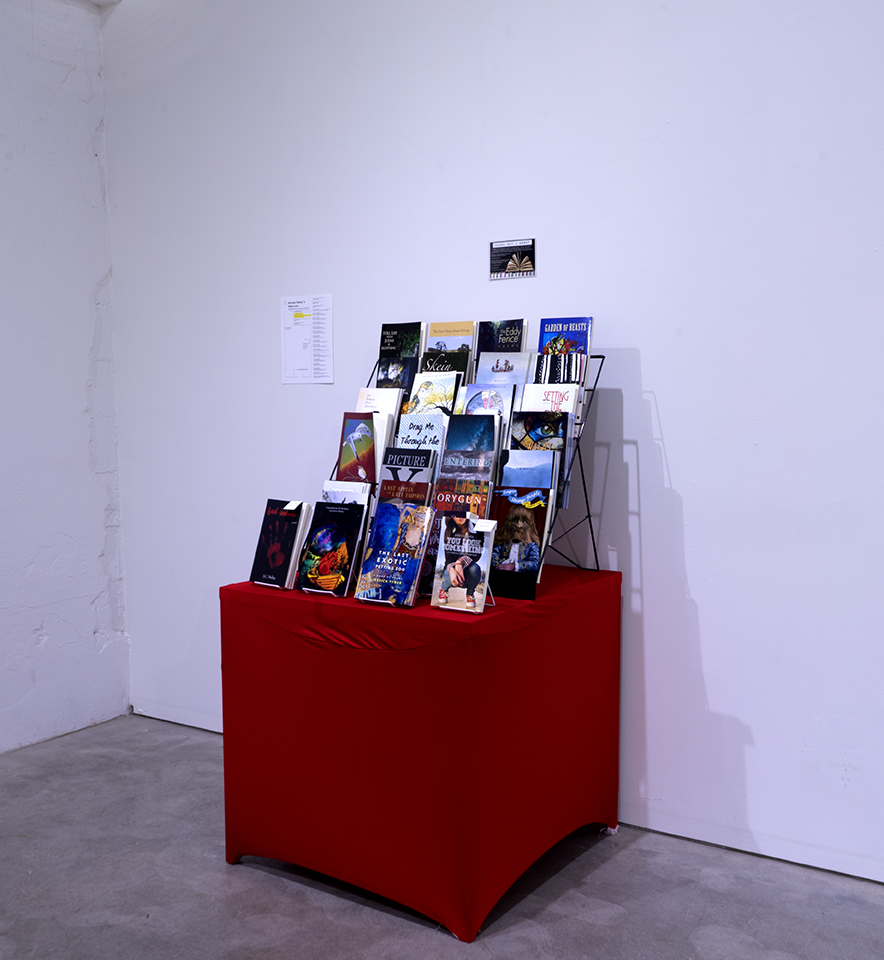
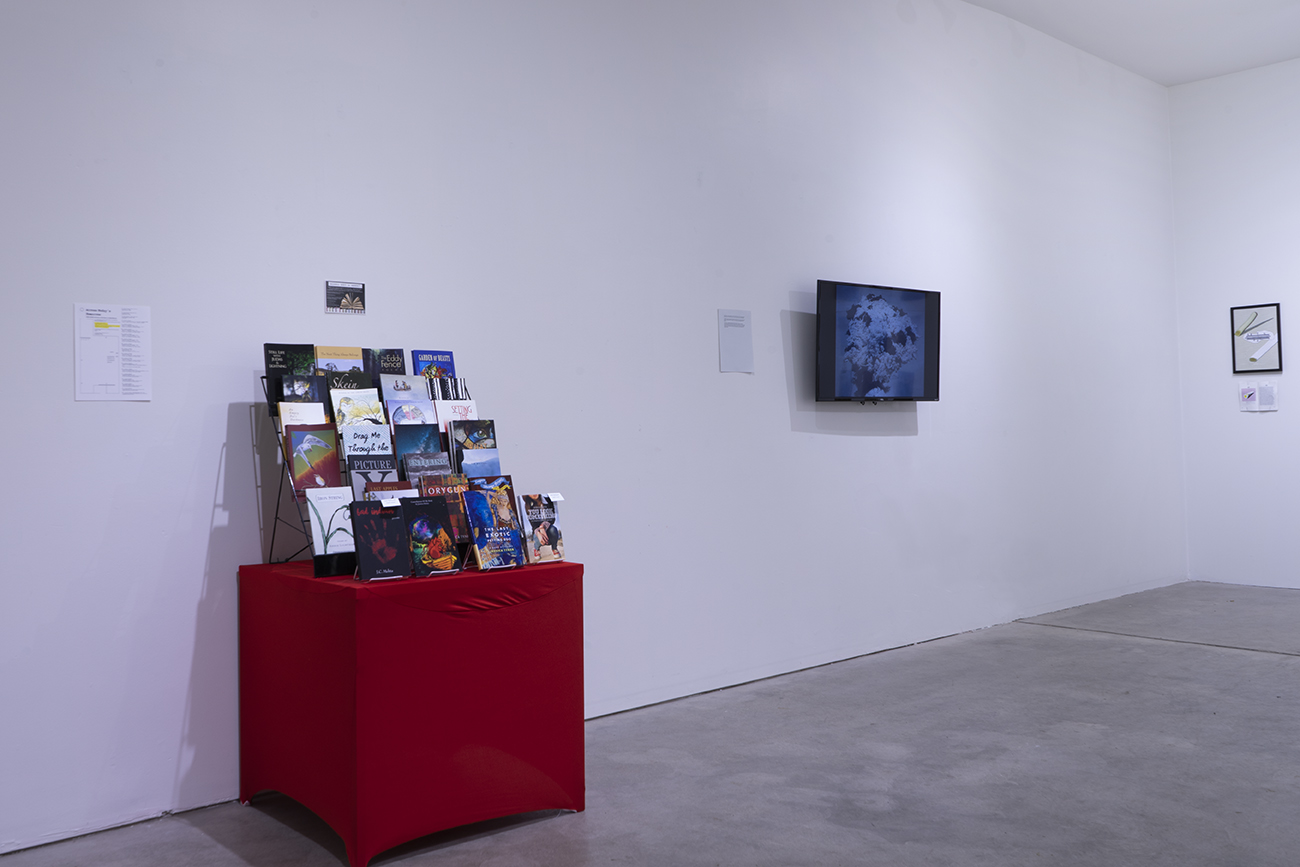


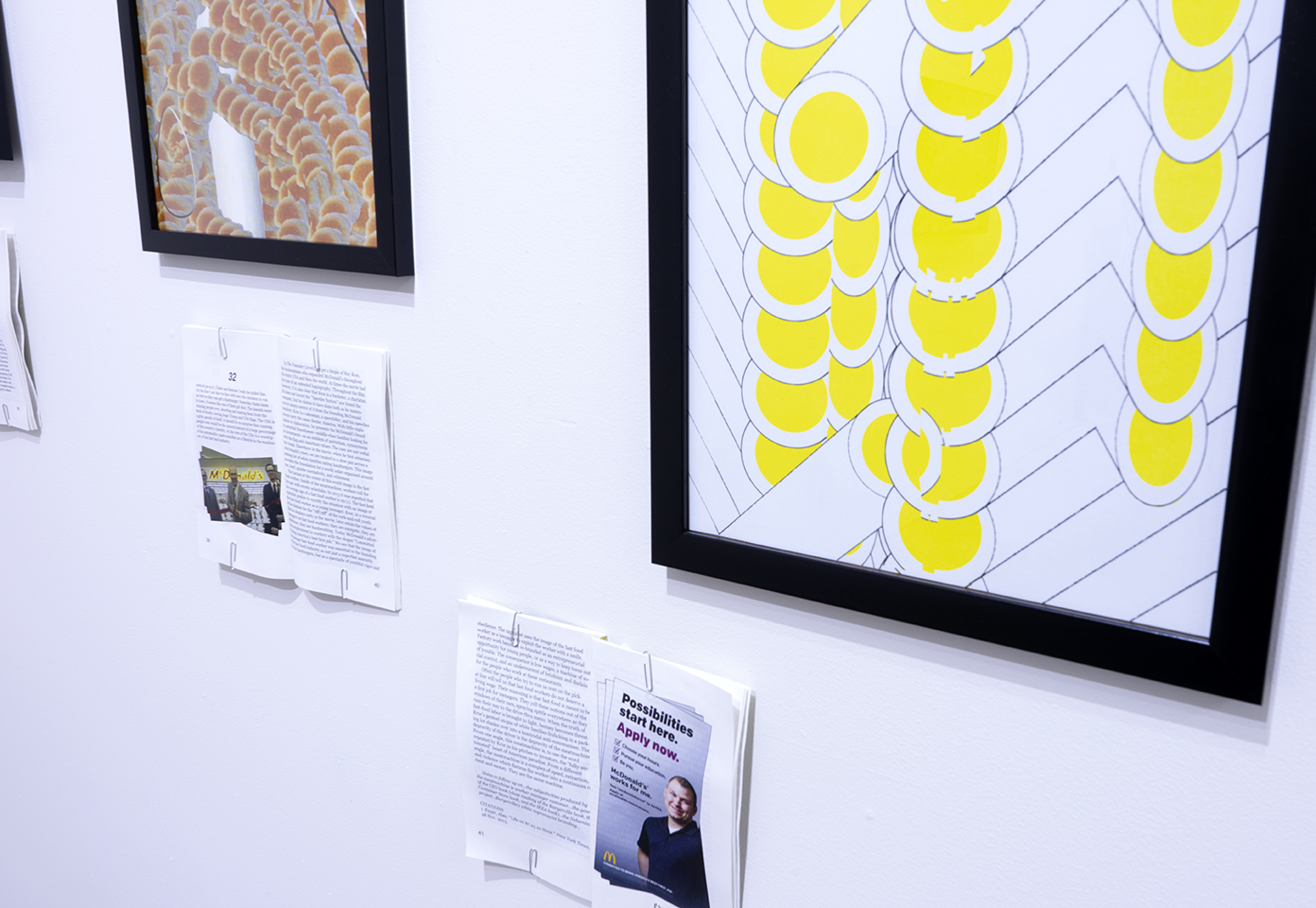

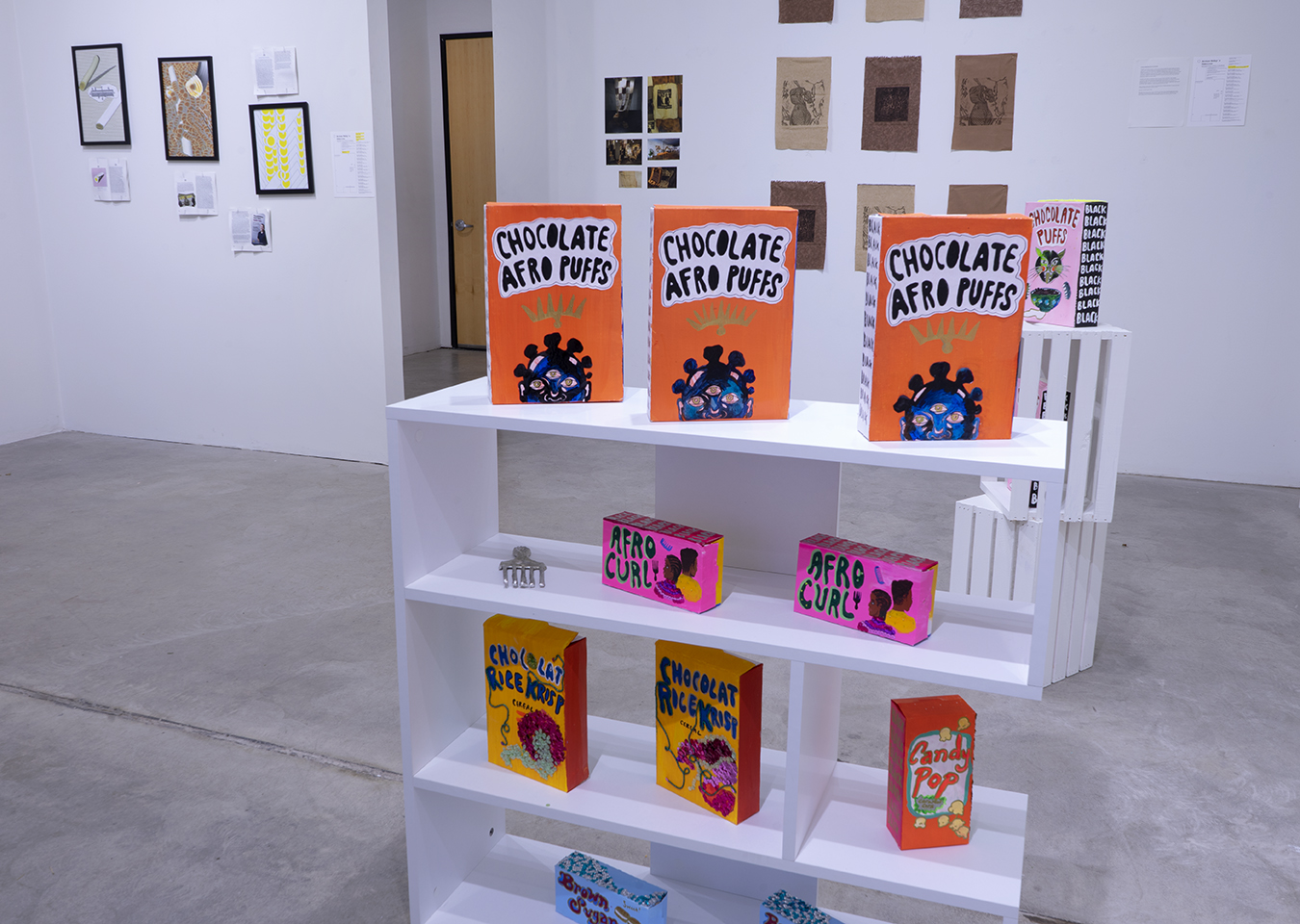

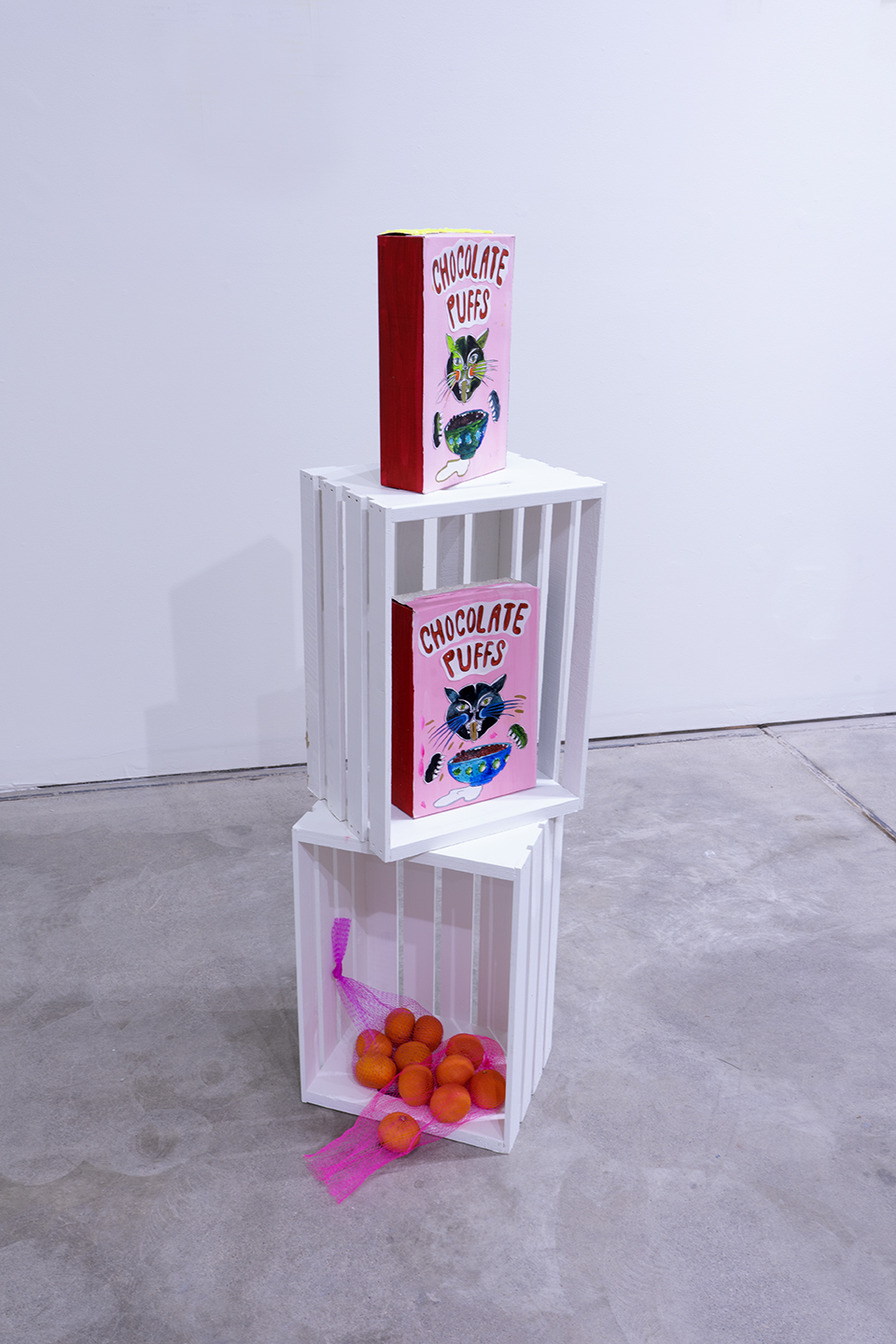


© Carnation Contemporary
Photo credit: Marcelo Fontana
Photo editor: Renee Couture
